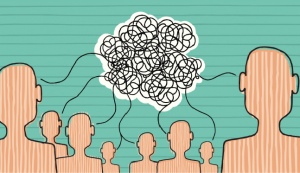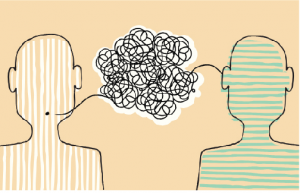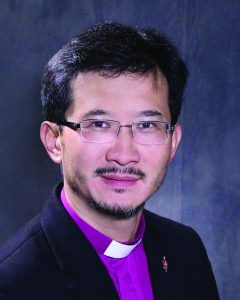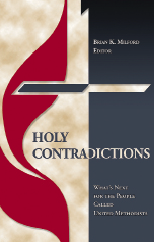 By Eduard Khegay, United Methodist Bishop of the Eurasia Episcopal Area –
By Eduard Khegay, United Methodist Bishop of the Eurasia Episcopal Area –
Nikolai Berdyaev (1874-1948), Russian religious philosopher, wrote in the beginning of the twentieth century that Russian thinking cannot be Eastern or Western. He argued that both of these extremes are not appropriate. His hope for Russia was that she would grow to global leadership, and wake up the inner creative activity of the people. This reminds me of our global United Methodist Church and the importance of a multidimensional view when we deal with issues of our time. We as a church also cannot be Eastern or Western. We need to learn how to bless and enrich one another with our gifts and graces.
The purpose of my essay is to challenge our global church to look deeper. While the issue of human sexuality has moved to the top of our attention, I see it only as a trigger of deeper issues we face today.
In this essay, I will analyze our global movement from my Russian/Eurasian perspective. I will present my position on leadership, take a critical view of Western democracies, reflect on Scripture and Wesleyan tradition, and share my thoughts on unity.
I share this text in the spirit of humility and hope that you will not perceive it as a judgmental “expert’s view,” but accept it as a good challenge to look at our global church differently.
Crisis of Leadership
I love stories. They communicate values and have the power to transform lives. One story I learned from an American friend is about U.S. President Harry S Truman, who had a sign on his desk with the phrase “The buck stops here.” He wanted to remember that as president he carried the ultimate responsibility for making decisions. This story reminds me of my role to lead and carry ultimate responsibility for my decisions as a bishop of The United Methodist Church. While I am convinced that each bishop works hard to lead his or her episcopal area, I find it very puzzling how we lead as the bishops collectively.
I realized at the 2016 General Conference that we have a crisis of leadership. It was quite surprising to hear from delegates that they wanted us, bishops, to lead. As bishops, didn’t we already know that we needed to lead? It is obvious that our global church requires new ways of leading that are different from leading at local or even national levels. And while the United Methodist structure and decision-making processes can be improved and reinvented, what lies underneath is the way we as bishops relate to one another.
Can you imagine a fruitful organization that is led by leaders who do not fully trust one another and cannot have honest conversations? Can this team of leaders lead through intensified parliamentary procedures and learning more about legal issues? I cannot see how we can lead our global church this way. My prayers and hopes are that someday we as bishops will take more action to build trust and have honest conversations about challenges our church faces today.
For me, the litmus test of trust and honesty among leaders in the organization, especially the church, is how much is discussed in the official meetings and how much is discussed in the corridors. Can leaders trust one another enough to bring the same questions to the official meeting that they discuss in the corridors? Or do we simply want to be polite and politically correct so we do not offend one another? Since when have politeness and political correctness in the church become higher values than trust and honesty?
This brings us to the next important issue for our global United Methodist body: unity. The Methodist movement has enjoyed unity and faced divisions during several centuries of its history. We struggled with the issue of slavery. The Church of the Nazarene, for example, left The Methodist Church and challenged us to practice deeper holiness and simplicity. Our present debate on human sexuality has challenged our unity as a global church. Suddenly we have realized that we understand human sexuality and sexual orientation differently depending on geographic region, culture, theological background, and biblical interpretation. The more important question for me is this: can we have unity in the UM Church without unity at the Council of Bishops? Again, unity at the council is related to the previously stated issue of trust and honesty.
Hey – maybe if I had ten million dollars today, I would invest them in building unity at the Council of Bishops! We need to figure out how to relate to one another and build a spirit of trust among ourselves. Can we model that for our global body? Some may find it too idealistic, given the fact that we speak several different languages, belong to multiple cultures, come from different continents, and live in extremely diverse economic and political systems. May we be reminded that the miracle of the Holy Spirit at Pentecost gave birth to our Christian church and united so many different people as they built trust and honesty in ministry with one another and to the world! The buck stops at the leadership level, and we as bishops have to figure this out. The present crisis of leadership can become an opportunity to do something we’ve never done before with transformational change and reform, leaving a long-lasting legacy for the future of The United Methodist Church.
Western democracies and the rest of us
I have experienced several disillusionments in my life. One of them was during my life in the Soviet Union, when I realized that the Communism we were building was not actually the one that I read about in Lenin’s books. I learned later that you cannot force people of the world to love Communism by using tanks and soldiers. Another disillusionment was when I studied in the United States. I realized that while democracy gives so many great opportunities and freedom to people, the people struggle with as much loneliness, racism, and addictions as they do in nondemocratic countries. I learned that you cannot force people of the world to love democracy by using airplanes and missiles. Here I want to juxtapose a few aspects of life to show that things are perceived and managed differently around the globe. And as a global denomination, we must take a serious look at these differences.
First, let’s look at legal and relational differences. It is no secret to any United Methodist who has experienced another culture that, generally speaking, life in Western democracies is fast paced. People are goal oriented and busy. In most other places of the world, though, relationships are of such high value that being together is often more important than personal goals. As one who grew up in Kazakhstan, in the former Soviet Union, I love my Central Asian culture. And even after twenty plus years of living in Moscow, I feel much more comfortable in my hometown of Almaty, drinking tea with my friends and sharing our lives, than achieving another new result in the twenty million-population megapolis of Moscow. That is not to say that we will not reach our goals. But as a global denomination, relationship must be our priority. Fifteen-minute coffee breaks will not do it – especially when coffee is not even my favorite drink!
The danger Western democracy projects onto the church is legalism. The way many of our Eurasian delegates experience General Conference is often very shocking. Legal matters, parliamentary procedures, appeals to Judicial Council, manipulations of points of order, disrespect toward presiding bishops – these are some of the things I have never experienced in my non-Western culture; and hope I never will. This is not the church I believe God desires to build. We read in the Acts of the Apostles: “Every day, they met together in the temple and ate in their homes. They shared food with gladness and simplicity. They praised God and demonstrated God’s goodness to everyone. The Lord added daily to the community those who were being saved” (Acts of the Apostles 2:46-47, CEB). One can sense the spirit of relationship rather than legalism.
So maybe if I had ten million dollars today, I would invest them in building relationships among our people on a global level! Maybe that sounds too idealistic. Well, when I visit churches throughout my episcopal area, sometimes my Moscow goal-oriented drive is unsettled when we drink tea for three hours, or eat borsch soup for four hours, or when people ask me to visit their home briefly and we share our stories long after midnight. In the process I find myself puzzled as to when I start my “work.” But after three days like that, I realize that people feel blessed and inspired by being able to share their stories with me, by being able to serve food for me and just be together, building relationships and friendships. Then I realize that building relationships is a higher goal than the one I had in mind. People are energized to grow in Christ and serve others through relationship. This is the beauty of relationships, and we need to develop this more on a global scale. Again, I would say that quick coffee breaks or even lunches (especially business lunches) won’t do it.
Second, let’s talk about human rights and morality. During the twentieth century, the Western democracies excelled at protecting human rights. Indeed, if not for Western democracies that promoted the value of human life and freedom of conscience, our world would likely have drifted more deeply into darkness. However, this focus has gone to the extreme during last few decades. To my cultural shock, I see teenagers manipulating the juvenile justice system; young people behaving disrespectfully toward elderly people in the name of freedom; and many propagating gay relationships as a norm and silencing those who stand for traditional families. I cannot accept that.
What I observe in Western democracies is that morality is often replaced with human rights. When I visited the Annual Conference of the Methodist Church in Britain some years ago, I heard one speaker from Samoa. He passionately challenged the audience with something like this: “When you came to us as missionaries you told us: ‘Dress up!’ [implying that Pacific Islanders’ dress was improper for Christians to wear]. Now I come to you, fellow Methodists in Britain, and say: ‘Dress up!’ [implying the devaluation of morality in this Western democracy].”
I must share with you that I value and love many achievements of the Western democracies. I am forever grateful that I became a Christian because of a U.S. missionary. I feel so blessed to have studied in a U.S. seminary. Many people I admire in the Christian world come from Western Europe and the U.S.A. But in today’s crisis of The United Methodist Church, I feel like part of our church in Western democratic countries acts like NATO, which keeps pushing its agenda and ignoring the United Nations. We do not want to repeat the same mistake NATO made in Iraq and Afghanistan. Our churches in the Western democratic countries cannot push their agenda on our global church, ignoring the fact that we are a worldwide body.
I hope our church continues to stand for human rights and teach people the value and sacredness of human life. But I hope even more that our church stands for morality and teaches people what God desires from us and what the Lord condemns. The extreme quest for human rights leads toward extreme individualism, which ignores the collectivism, solidarity, and shared morality so central to Christian experience and tradition. This is interconnected with the previous point on the relational aspect of Christian community and also brings us to the next point.
Third, worldly influence and holiness are critical to our future together as the church. One of the Ten Commandments tells us to observe the sabbath day and treat it as holy. God’s example and God’s design for creation teaches us holiness. As Christians, we are called holy in the Bible, people who are “called out” in this world – people who live by higher standards. We are people who are shaped by relationships with the Holy One every day. That changes everything.
What I observe in the countries with Western democracies is that worldly influence has gradually taken over some churches. Being moral and preaching holiness is not trendy anymore. Instead, individualistic desires to use marijuana freely, legalize weapons, redefine God-given understanding of family, and accumulate more wealth than one can use during a lifetime become modern idols. Many people living in other countries see this as the worldly attack on churches and Christian faith.
One may argue that we lose people because we are not trendy in the society. I would argue that we lose people because we do not consistently strive toward holiness. When you live a holy life, different from the world, you might risk people laughing at you or blaming you for not being loving or just. But Jesus walked this way before us, and he made it clear for people to understand what is holy and what is not. He spent time with the poor and outcasts of society, and he rebuked Pharisees and scribes. Jesus never played with the trendy influences of his time. His message was clear, challenging, unsettling, and transforming. He wants us to be holy because God is holy.
Why do I find these things of high importance for the United Methodist global body today? It is because we are a global body. But the problem is that we are managed as an organization within the Western democracy. And that brings me to my final point in this section.
Fourth, we must address the global nature of our church with its power, money, and politics. The history and nature of the Christian church is such that its leaders from Western democracies sent missionaries to spread the gospel into many continents. They had money and power. In many ways, the rest of us feel like children of our mother church. Our mother was proud of fast growth, exciting results, amazing Christian education, and the alleviation of poverty. She has gladly shared resources with her children. But children began to disagree with mother as her opinions on the issue of human sexuality changed. That is when children had to learn that, unfortunately, even in the church, power, money, and politics are very real.
Suddenly, the children learned that mother would no longer love and support them if they continued to disagree with her. It turned out that mother was no longer satisfied with how much her children contributed, although she had been happy to give them everything abundantly when they listened to her and followed her directions. She began to ignore her own democratic rules that she had taught her children to follow. The majority voice will not stop her because she has the power, money, and politics. She has become so political that her children can neither understand her nor even speak her language. She wants to keep pushing her agenda even if that means losing her children.
Scripture and Wesleyan tradition
Conflicts and disagreements happened in the church historically, and they will continue to challenge our global church as we continue to learn what Scripture means for us today and how we continue to spread scriptural holiness throughout the land and strengthen our Wesleyan tradition. I am convinced that just as God created in the early church, God will create something new through this present conflict in the United Methodist movement. For some, it is a new interpretation of Scripture and a new definition of marriage. For others, it is renewed and strengthened traditional understanding of Scripture and marriage. It is obvious that these realities differ depending on the culture and context in which you live today. How do we continue as a global body? Let me give you one extreme illustration.
As you may know, polygamy is a reality in Africa. Our sisters and brothers have struggled with this issue for many years. Yet we as Christians hold the very orthodox position that monogamy is a norm. Can you imagine our sisters and brothers in Africa disturbing our General Conference with their protests, ignoring the voices around the world, and forcing us to bless polygamous marriages in our own contexts? I cannot imagine that.
Our Wesleyan tradition uses Scripture, reason, tradition, and experience as four authoritative sources together. The current crisis in our church challenges us to “test the spirits to see if they are from God” ( 1 John 4:1 CEB). One can see and feel how Scripture is picked and used to “baptize” what people want to believe rather than what the text says to us. Some people base their position heavily on the experience of their lives or the lives of their family members and friends. Others emphasize tradition that has kept the Christian church alive through the centuries and trials and persecution. The genius of the Wesleyan tradition is that we keep these four quadrilateral parts in creative tension and let the Spirit move us forward. Come, Holy Spirit, come!
The Book of Discipline of The United Methodist Church has been an important document, reflecting our unity among many things. Not anymore. Today, I cannot explain to my sisters and brothers in the Eurasia Episcopal Area why some United Methodists break the Discipline while others have to follow it. This is an important time for us to reflect again on what unity is.
As I envision the future of The United Methodist Church, I am confident that our church must have the unity of its leaders first. We need deep listening for one another and to learn from one another. We need to build trust and practice honesty. Where the covenant has been broken, we need time for restoration, healing, and a new level of relationship.
The buck stops with us bishops. I do hope and trust that the General Conference will make a new way forward for our global movement. This, however, would not automatically improve unity in the Council of Bishops and guarantee trust and honesty in our relationships. We need to do it – the sooner, the better.
Shared Christian values, morality, and holiness are important aspects of unity. You cannot have unity between husband and wife if one thinks that adulterous relationships are acceptable, while the other remains fully committed. I hope that our worldwide Methodist movement will constantly strive toward holiness and have a powerful witness with influence in the modern world – our modern world ruled by the “selfie-centered” lives of “my rights” and “my freedom.” The Christian movement has always inspired people to be holy and be together rather than live “selfie” lives.
Our Christian faith is full of tension when it comes to power, money, and politics. How do we use these gifts and graces to sacrifice and empty ourselves, to deny ourselves, to take up our cross and follow the Holy One? Will we hold these gifts as weapons to fight, or will we be willing to be crucified with Christ and experience the Resurrection?
Let me conclude with my personal story. As I was writing this essay, presidents Donald Trump and Vladimir Putin had their first face-to-face meeting in Germany during the 2017 G20 Summit. I am perfectly aware that these two names awake a lot of emotions in us, both positive and negative. As a child of the Cold War who was told that Western countries were going to drop a nuclear bomb on the Soviet Union, I still remember those high school drills when we put gas masks on our faces and hid under the table to practice our actions in case of nuclear war. But God brought me to faith in Christ, and through our church I learned that I have sisters and brothers in Western countries who not only do not want war with us in the East, but they also love us as God loves them. They pray that God would use their presidents as instruments of peace. This was a transformational experience for me.
So, when I see presidents Trump and Putin talk with each other, I am hopeful and reminded of Nikolai Berdyaev’s thought that we cannot be Eastern or Western. We are called to be together and bless one another whether we come from East or West, North or South. Like our church at Pentecost, let us continue to meet and share food with gladness and simplicity, listen to one another, praise our God, and serve others. And the Spirit of God will move us forward.
 Eduard Khegay is bishop of the Eurasia Episcopal Area of The United Methodist Church. This article (originally titled “In Christ there is no East or West”) is taken from Holy Contradictions (Abingdon Press, 2018), a collection of essays representing diverse responses on how United Methodists can live in the Wesleyan tradition in times of disagreement. The seventeen contributors include among others Tracy S. Malone, Thomas Lambrecht, Rob Fuquay, Audrey Warren, and Philip Wogaman.
Eduard Khegay is bishop of the Eurasia Episcopal Area of The United Methodist Church. This article (originally titled “In Christ there is no East or West”) is taken from Holy Contradictions (Abingdon Press, 2018), a collection of essays representing diverse responses on how United Methodists can live in the Wesleyan tradition in times of disagreement. The seventeen contributors include among others Tracy S. Malone, Thomas Lambrecht, Rob Fuquay, Audrey Warren, and Philip Wogaman.







I really appreciated this article. I suspected that what we hear from COB and the UM news service lacked the whole truth of what goes on at the meetings. I appreciated Khegay’s bravery and candor. I’m sure it was not received well by many of the bishops.
Well said!!
Bishop Khegay brings a crucial perspective that was largely missing from our Western-centered tabletop of what is indeed, a global issue of global consequence. Too bad Westerners don’t read. Maybe Bishop Khegay could put this into four, video-shorts? I am joking, of course, but sadly, we (Westerners) have abandoned classical disciplines of reason. I am curious how many, especially of oppositional views, will give this valuable and again, crucial stance the thoughtfulness it deserves.
Eduard Khegay for COB president!! We live in the world but we don’t have to be OF the world as Jesus said.
I think that the Bishop has hit on an important task for all of us, but especially the leadership: the development and nurturing of a culture of holiness. Capitulation to the individualistic culture of the West has led us down the path of further and further fragmentation at the hands of the latest thing on the “market.”
I absolutely agree that the UMC has lacked strong leadership! And because of it the congregations are confused ignorant of Scripture and “doing what seems right in their own eyes”. Judges.
It is still true that the people perish for lack of a vision!
I pray the Holy Spirit to set the UMC on fire once again! Diane Moeller
“What I observe in Western democracies is that morality is often replaced with human rights.”
This is a brilliant observation (that probably seems remarkable to me since I live in that Western culture). This quote will almost certainly appear in one of my next few sermons (with attribution, of course).